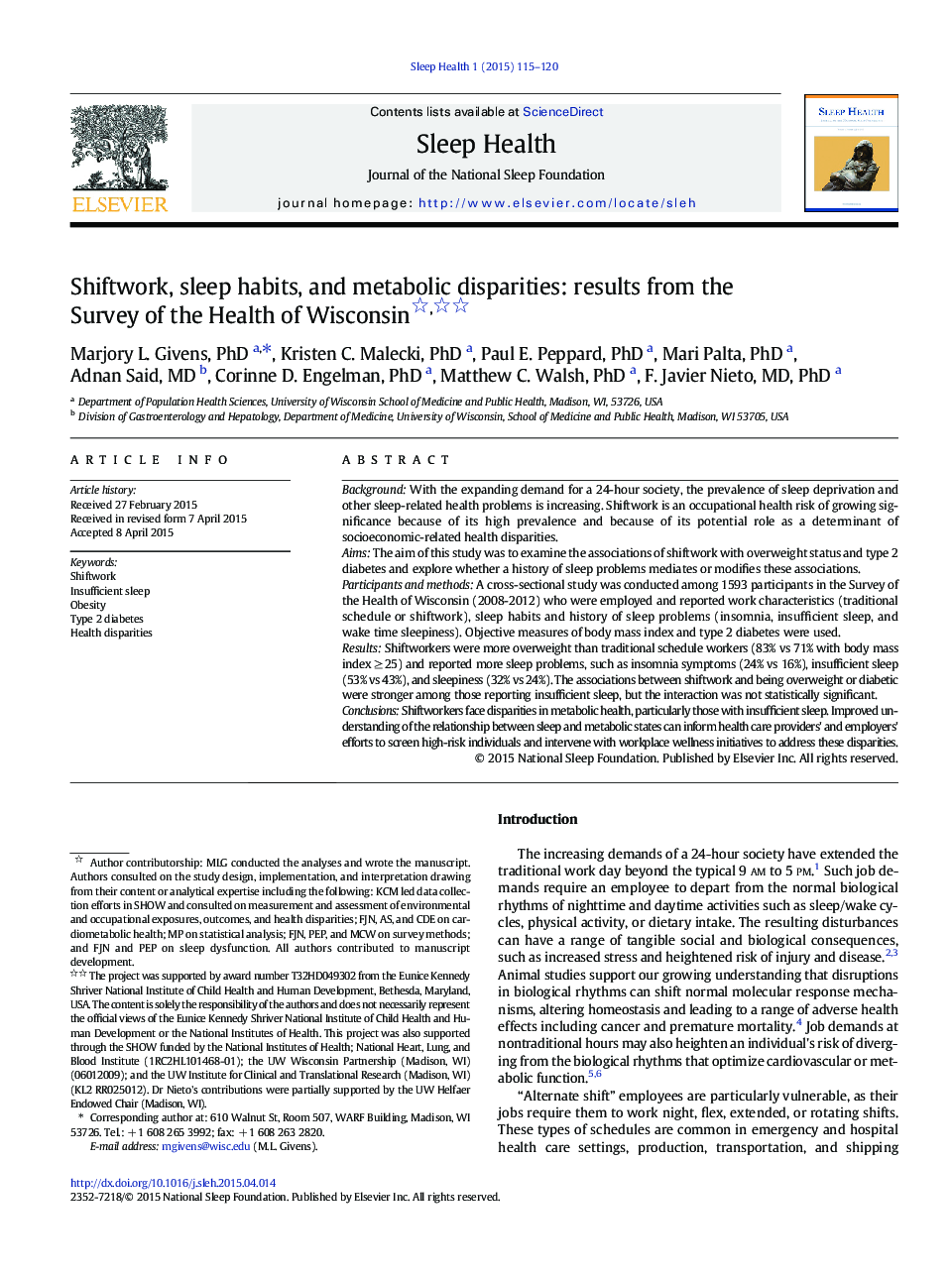| Article ID | Journal | Published Year | Pages | File Type |
|---|---|---|---|---|
| 916340 | Sleep Health | 2015 | 6 Pages |
BackgroundWith the expanding demand for a 24-hour society, the prevalence of sleep deprivation and other sleep-related health problems is increasing. Shiftwork is an occupational health risk of growing significance because of its high prevalence and because of its potential role as a determinant of socioeconomic-related health disparities.AimsThe aim of this study was to examine the associations of shiftwork with overweight status and type 2 diabetes and explore whether a history of sleep problems mediates or modifies these associations.Participants and methodsA cross-sectional study was conducted among 1593 participants in the Survey of the Health of Wisconsin (2008-2012) who were employed and reported work characteristics (traditional schedule or shiftwork), sleep habits and history of sleep problems (insomnia, insufficient sleep, and wake time sleepiness). Objective measures of body mass index and type 2 diabetes were used.ResultsShiftworkers were more overweight than traditional schedule workers (83% vs 71% with body mass index ≥ 25) and reported more sleep problems, such as insomnia symptoms (24% vs 16%), insufficient sleep (53% vs 43%), and sleepiness (32% vs 24%). The associations between shiftwork and being overweight or diabetic were stronger among those reporting insufficient sleep, but the interaction was not statistically significant.ConclusionsShiftworkers face disparities in metabolic health, particularly those with insufficient sleep. Improved understanding of the relationship between sleep and metabolic states can inform health care providers' and employers' efforts to screen high-risk individuals and intervene with workplace wellness initiatives to address these disparities.
